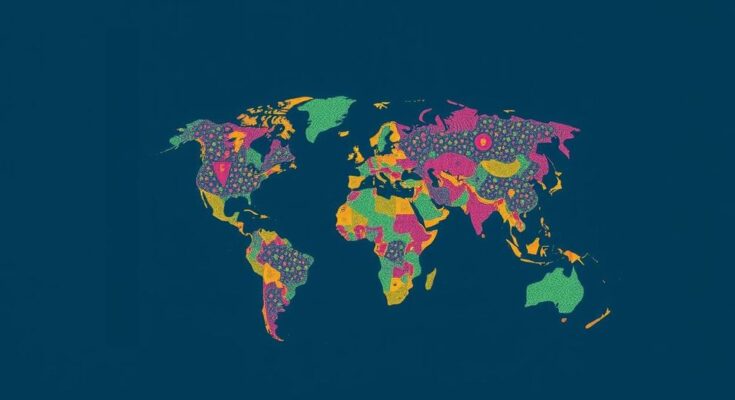COP29 opens in Baku against a backdrop of geopolitical conflict and economic uncertainty, with doubts about achieving a strong climate agreement. Azerbaijan’s lack of experience and calls for boycotts complicate discussions. A key issue will be financial commitments from developed to developing nations, influencing the possibility of consensus amidst shifting alliances and domestic crises.
The 29th UN Climate Conference (COP29) is set to begin in Baku, Azerbaijan, amid significant geopolitical turmoil, including conflicts in Ukraine and the Middle East and the recent re-election of Donald Trump. These factors cast doubt on the prospects for a strong climate agreement this year. Azerbaijan, an oil-dependent nation, has generated calls for boycotts due to its recent military actions against Armenians in the Nagorno-Karabakh region. Unlike Dubai, where diplomatic momentum propelled negotiations, Azerbaijan’s lack of experience in handling climate diplomacy and delays in pre-negotiations challenge the viability of COP29. One of the central issues at COP29 will be funding commitments from developed to developing nations. Developed countries promised to deliver $100 billion annually for climate initiatives from 2020 to 2025, but failed to meet this goal on time. The urgency is heightened, as the conference is expected to discuss post-2025 frameworks necessary for addressing climate change demands, primarily driven by the needs of the most vulnerable nations who await these funds. Despite the formidable challenges, COP conferences have traditionally fostered cooperation, with negotiators focusing narrowly on climate matters, somewhat insulated from external geopolitical tensions. These talks often transform into a complex diplomatic bubble wherein alliances shift as countries position themselves within broader groups. The presence of entities such as the United States and China could prove crucial, especially given their joint efforts that previously facilitated the Paris Agreement. However, the recent internal crises within nations may complicate COP discussions. The ongoing conflicts might impede necessary multilateral agreements, while domestic considerations in European countries could lead to cautious stances on supporting developing nations amid budgetary constraints. Countries could become reluctant to fulfill their commitments to those most impacted by climate change, resulting in a standoff. The implications of Donald Trump’s return to power could further cloud negotiations—historically, U.S. administrations have been resistant to escalating climate funding obligations. As uncertainty looms over how the European Union and China will collaborate to advance climate talks, the outcome of COP29 could be more tenuous than ever. Critics of COPs voice concerns over their effectiveness, suggesting that while they serve as vital platforms for international cooperation, expectations should be tempered. There remains a significant gap between the actions necessary to mitigate climate change and the promises made at previous conferences, underscoring the vital need for proactive and effective policies.
As global leaders convene for COP29, the backdrop of ongoing international conflicts, economic instability, and political shifts presents a challenging environment for climate negotiations. Azerbaijan, hosting this year’s conference, has been under scrutiny for its human rights record and recent military actions, complicating its ability to lead effective discussions on climate commitments. The core focus on North-South financing reflects ongoing tensions surrounding developed nations’ roles in providing financial support to developing countries, fundamental for achieving climate action goals. The urgency of securing meaningful agreements ahead of the 2025 climate pledge deadline intensifies the need for cooperative dialogue despite prevailing geopolitical obstacles.
In conclusion, COP29 faces significant challenges stemming from political turmoil and global conflicts that may hinder progress in climate negotiations. The importance of financial commitments from developed nations to support vulnerable countries remains a pressing issue, while the traditional collaborative atmosphere of COP conferences may be tested by external tensions. The re-election of Donald Trump and internal political strife in various nations could further impact the discussions. Ultimately, the success of COP29 hinges on the willingness of nations to prioritize climate commitments over individual national interests, amidst growing public skepticism regarding the effectiveness of these conferences.
Original Source: international.la-croix.com




